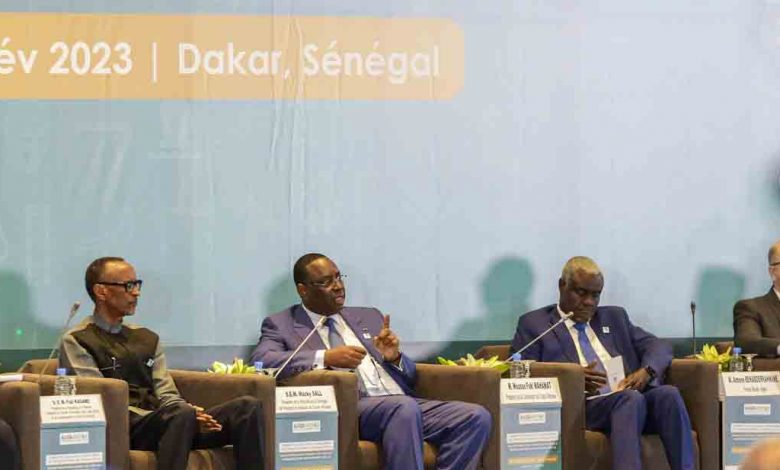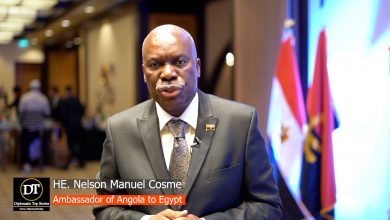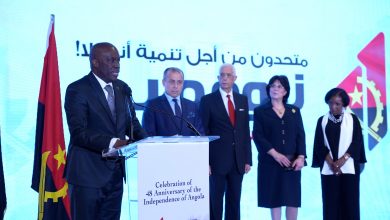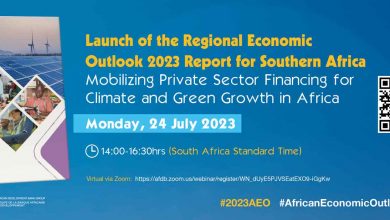Dakar Financing Summit 2: African leaders praise progress in infrastructure development, but call for more robust project preparation | African Development Bank

Diplomat.Today
The African Development Bank
2023-02-13 00:00:00
——————————————-
African leaders urged development finance institutions and international partners to increase support and funding for infrastructure project preparation initiatives, including providing more grant funding to the NEPAD-Infrastructure Project Preparation Facility (NEPAD-IPPF) being organized by the African Development Bank.
In a communiqué released after the conclusion of the second infrastructure financing summit in Dakar, African presidents also called on technical and financial partners to support the mobilization of resources needed to make infrastructure projects more bankable. There was also consensus on the need for stronger national and regional risk mitigation systems to attract more private investment.
The African Union and the government of Senegal brought together a range of actors at the summit to rally support and funding for 69 priority water, information and communications technology, energy and transportation projects worth $160 billion. These projects fall under the second phase of the Pan-African Program for Infrastructure Development in Africa (PIDA PAP2) which runs from 2021 to 2030.
“The continent’s infrastructure progress is real, but the challenges are also real,” Senegal’s President Macky Sall, the current president of the African Union, said in his opening address.
Referring to PIDA’s priority projects, Sall said: “Sixty-one percent of the 69 projects have not yet undergone feasibility studies to attract private investors. We need to develop synergies between multilateral partners and NEPAD to conduct feasibility studies.”
Sall pointed to public-private partnerships as a possible solution for African governments constrained by economic conditions. He said construction of the deep-water port of Ndayane in Dakar would begin in February 2023. The project, a collaboration between the government and DP World, an Emirati logistics company, is expected to cost $800 million.
“Egypt is ready to share its expertise in public-private partnerships,” said Egyptian Prime Minister Mostafa Madbouly. The country has raised more than $140 billion in recent years, largely through public-private partnerships, for investment in new infrastructure, he said. This had helped create 5 million new jobs.
Marie Laure Akin-Olugbade, Vice President of the African Development Bank, led a delegation to the summit and represented its head, Dr. Adesina. She said: “The African leaders here understand that it is possible to attract the private sector. The winning formula is no mystery or secret. It starts with well-prepared projects.”
She gave the example of the Abidjan-Lagos Corridor Highway Development project, a PIDA priority project, for which “the African Development Bank, in partnership with the EU through the PAGODA Framework Agreement, mobilized $43 million to conduct feasibility studies. Now the project has transformed into a public-private partnership model,” said Akin-Olugbade.
Project sponsors, including ECOWAS in partnership with the bank, presented the project at the Africa Investment Forum’s Market Days event in 2022. The summit’s communiqué mentioned the Africa Investment Forum as a potential channel to attract more investment for PIDA PAP 2 projects.
Every dollar of grant support from NEPAD-IPPF for studies of regional infrastructure projects has helped mobilize an average of $409 in downstream support for the realization of physical infrastructure projects in Africa, Akin-Olugbade added. “This is significant leverage and demonstrates the catalytic effect and importance of investing in quality project preparation.”
Nardos Bekele-Thomas, CEO of the AU Development Agency, listed three things that would be indispensable for world-class infrastructure in Africa. “We need our own DFIs. And they can come together and do great things; We need to set up facilities for project preparation and we need partnerships.”
On the last day of the summit, deal room sessions presented 16 priority projects, including the establishment of a navigation line between Lake Victoria and the Mediterranean feasibility study project; the Angololo Multipurpose Water Resources Development Project on the Kenya-Uganda border; and the Masaka-Mwanza transmission line project involving Uganda and Tanzania.
There were several African Development Bank projects, including the Abidjan-Lagos Corridor Highway Development project, which has already attracted $15.6 billion in interest; the Praia-Dakar-Abidjan multimodal transport corridor project; and the construction of the Central Corridor Standard Gauge Rail (SGR) in East and Central Africa.
The Bank is also currently financing, through the NEPAD-IPPF, the Lamu Port Development: Transaction Advisory Services and Technical Assistance project, which is part of the LAPSSET corridor development project. LAPSSET will connect the port of Lamu in Kenya with South Sudan and Ethiopia.
PIDA is a joint initiative of the African Union Commission, the New Partnership for Africa’s Development Planning and Coordination Agency (AUDA – NEPAD) and the African Development Bank.
Click here to read the full Dakar Statement on Synergies of Infrastructure Finance Action in Africa
For a full list of PIDA’s current priority projects, click here
——————————————-



